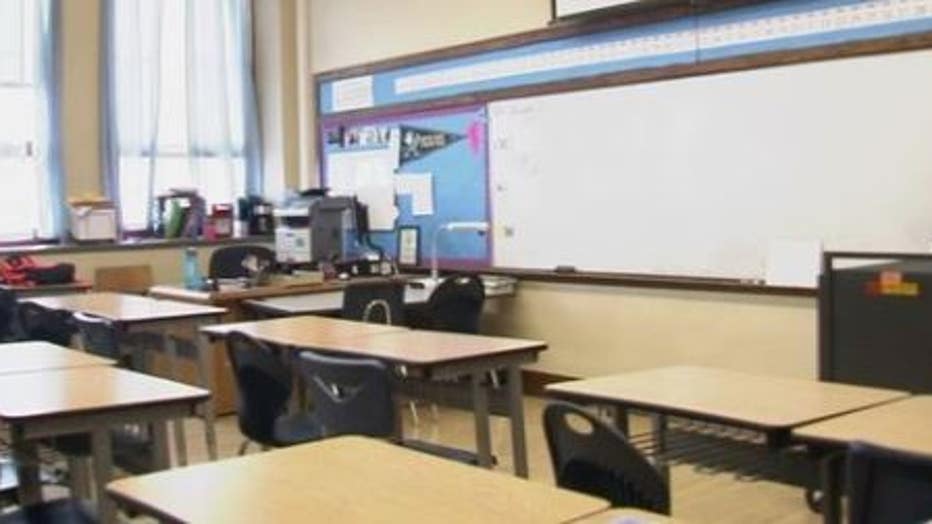Panic buttons, automated door locks among new TEA school safety requirement plan
Panic buttons, automated door locks among new TEA school safety requirement plan
In response to the deadly school mass shooting in Uvalde, the Texas Education Agency developed a new plan to "improve security" in Texas public schools.
Panic buttons in classrooms and automated door locks are two of the school safety requirements in a new report from the Texas Education Agency.
In response to the deadly school mass shooting in Uvalde, the Texas Education Agency developed a new plan to "improve security" in Texas public schools.
"Obviously, hardening facilities is important," said Craig Miller, retired chief of police for Dallas ISD.
The plan, which was unveiled Thursday, includes that all schools have silent "panic buttons" to connect with police in the event of an emergency.
"I do think that the panic alarm system, or panic button, is very interesting, especially for districts that have portables," Miller said.
Schools would be required to have working two-way emergency radios.
Something that was a problem at Robb Elementary School, prompting now fired Uvalde ISD Police Chief Pete Arredondo to use his cell phone to communicate with dispatch and other officers.
"Having the two audits a year for the radio communications, I think that is a really neat proposal that they will be really valuable to the state," Miller added.

Doors and windows that allow entry into the school would be required to be locked and undergo regular inspections and maintenance.
Plus, a master key must be available for emergency access.
"That will allow us to have the most secure entrance possible," Dallas ISD Superintendent Stephanie Elizalde said.
RELATED: Dallas ISD high school damaged by tornado to become state-of-the-art learning center
On Tuesday, Elizalde toured the new Thomas Jefferson High School.
It was one of several DISD schools damaged by an EF-3 tornado in 2019.
It has a fortified front entrance called a "security vestibule."
"Which, at any of our schools now undergoing renovation, that is now standard practice," Elizalde said.
School districts can apply for grants from the TEA for spending on various security-related costs over the next two years.
Grants will be awarded using a per-pupil count, but districts will receive at least $200,000 to ensure small rural districts can also tackle infrastructure costs.
"They're going to have to really work with their community and the administration to determine what is the essential things that they really need," Miller added.
The public can weigh in on the proposed rules from November 11 to December 12, before a final version is submitted to the Texas registrar.
If adopted, the rules would go into effect within two days of submission.

